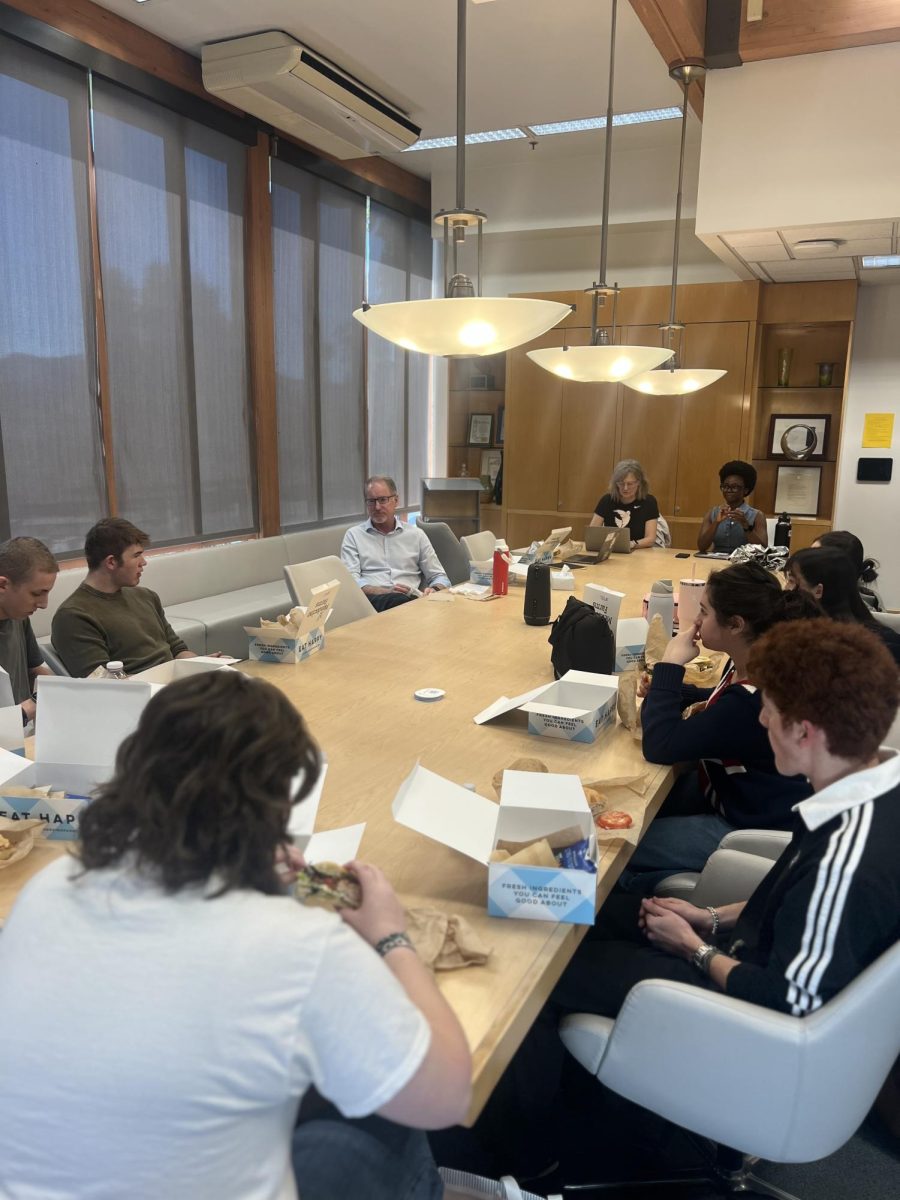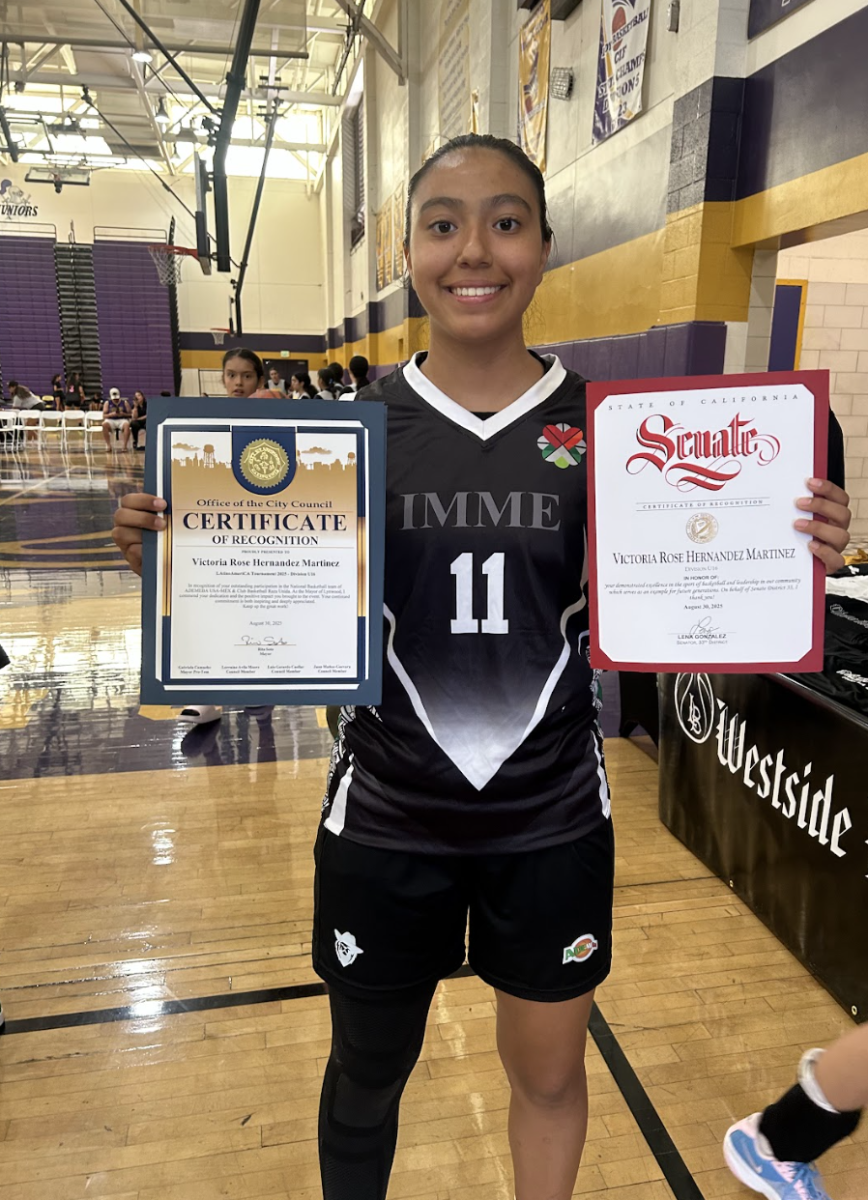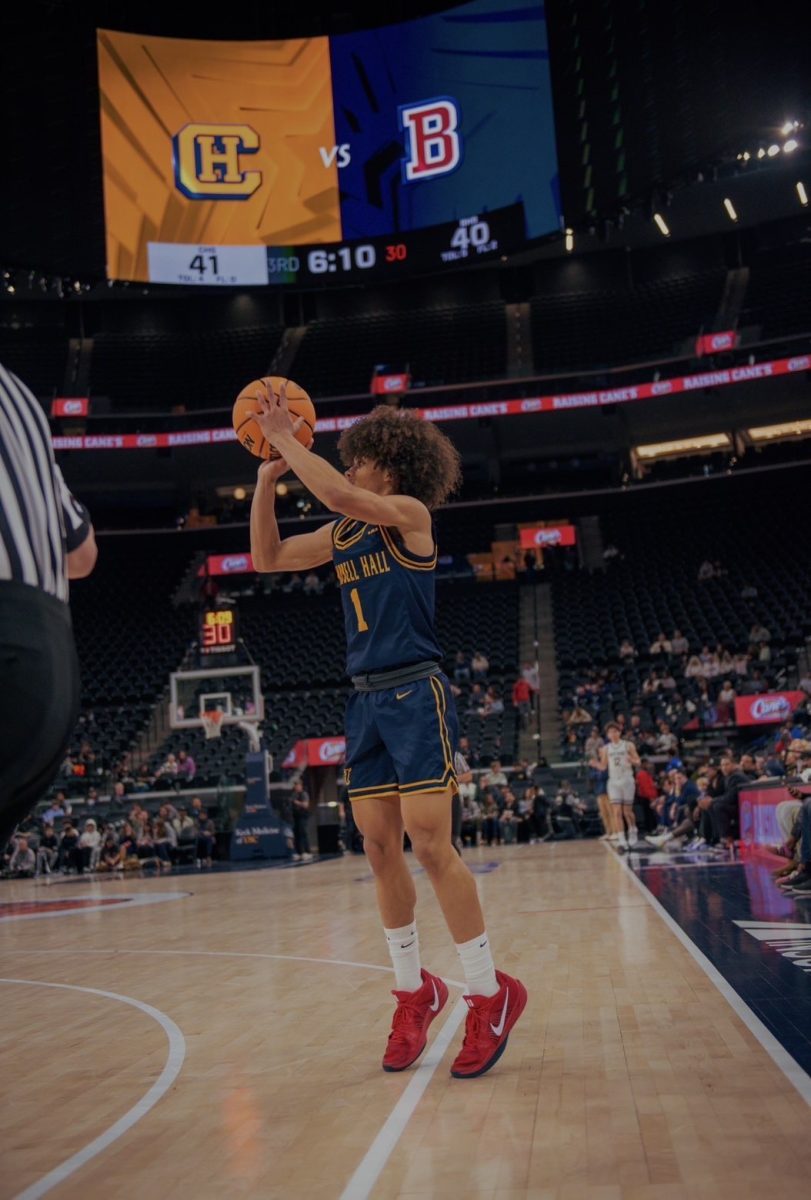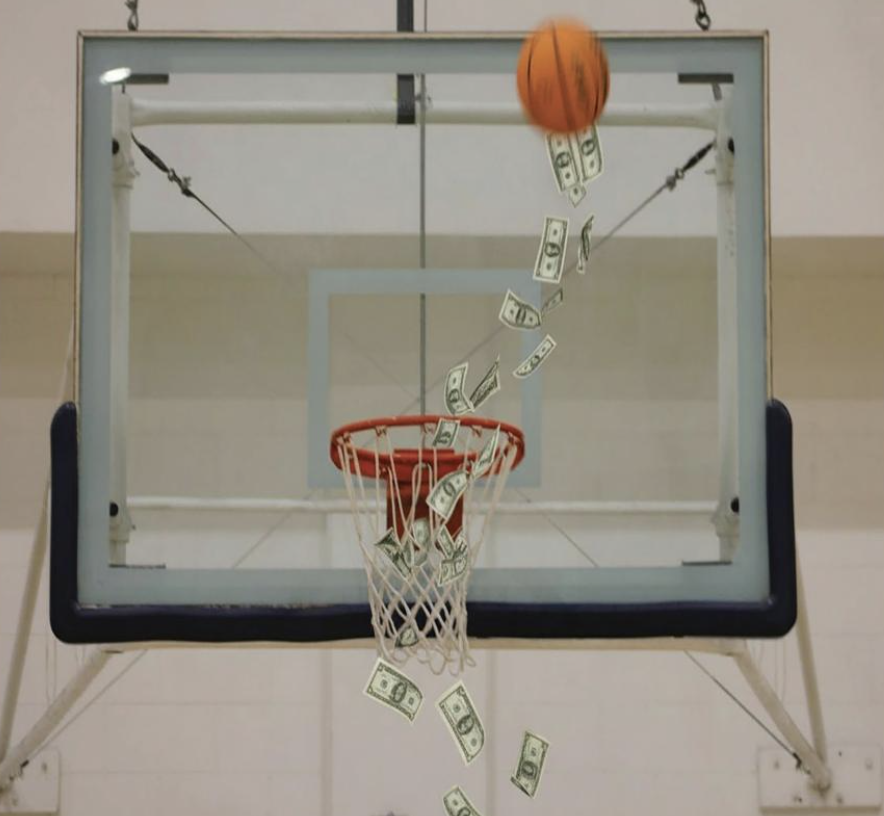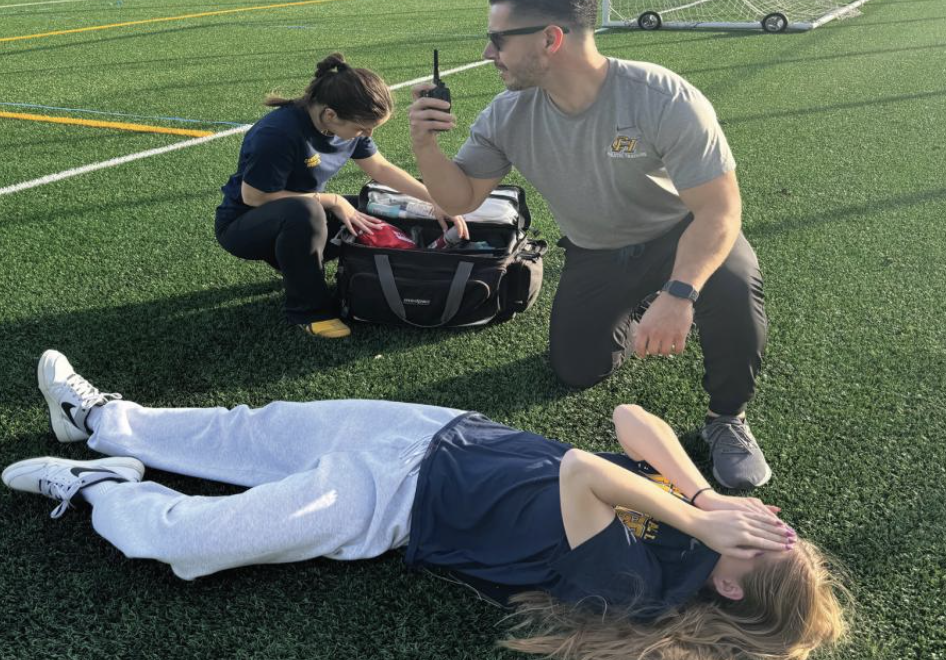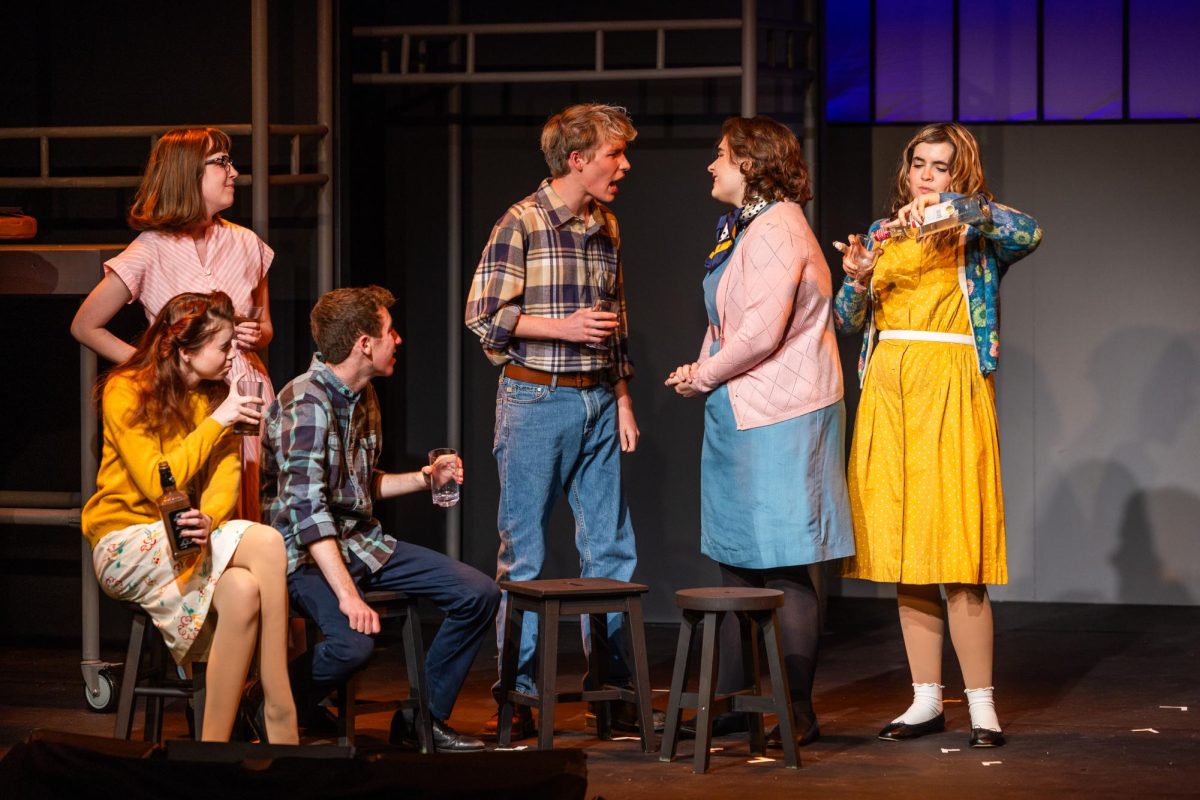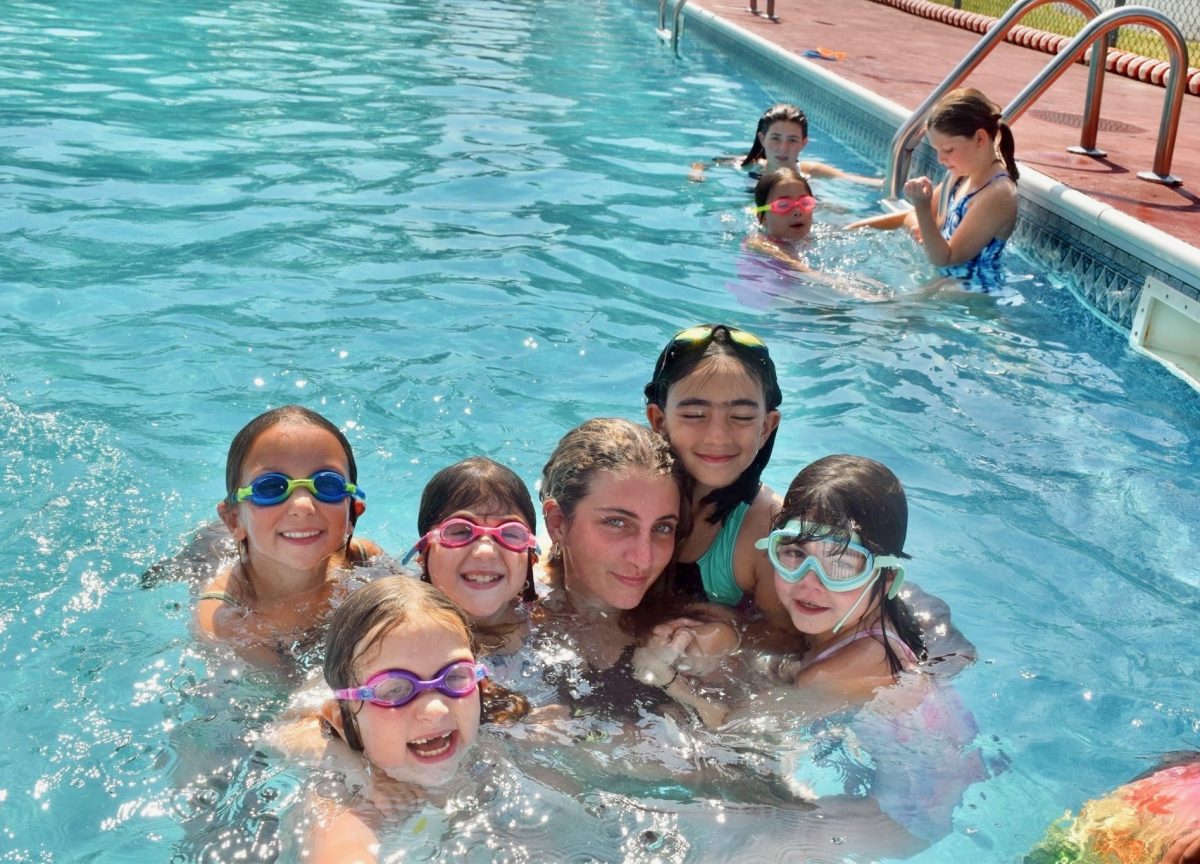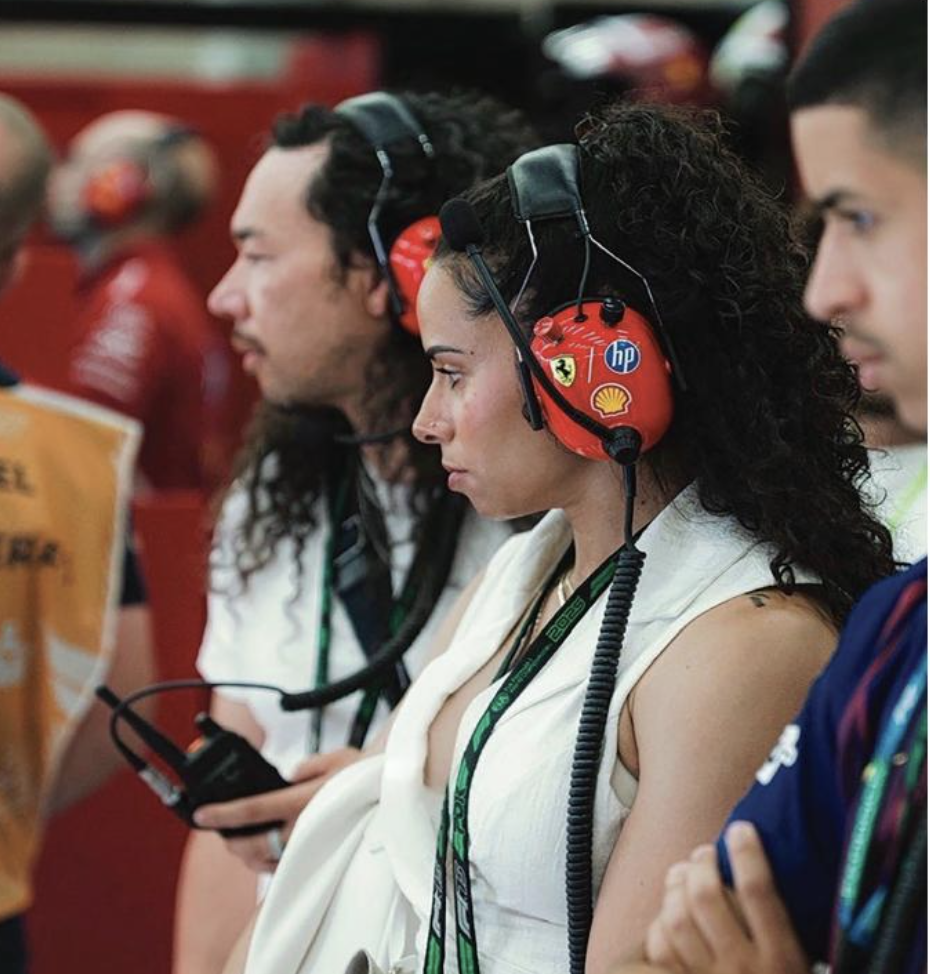Elementary School Athletic Director Elan Buller watches elementary students play kickball during P.E. on the football field. A student kicks the ball high and long and another student on the opposing team races to catch it, missing it by inches. Frustrated, the student throws his head back in exasperation and then catches Buller’s eye. Remembering the advice Buller gave on multiple occasions, the student takes a deep breath, adjusts and gets ready for the next play.
Buller has been an elementary P.E. teacher for elementary for 17 years, recently becoming the elementary Athletics Director. He believes that teaching students at a young age to have good sportsmanship and communication skills will set them up for success later on in life. As a coach, he feels he must act as a role model for his students, just as his coaches once did for him.
“It’s always the coaches that you have [had] in the past that formulate your philosophies and how you coach,” Buller said. “I was fortunate enough to have some really good coaches that I looked up to. Knowing how much I appreciated those coaches and what they did for me gives me the perspective and outlook to know that that’s how [children] look at me. I’m always being mindful of [the fact that] it’s not just the sports that you’re teaching them, but you’re teaching them life lessons.”
Susanna J. ‘25 has also found that coaches play a pivotal role in a child’s development and engagement in a sport. As a young gymnast, Susanna did not have a good experience with her coaches; she felt the environment in her gym was unhealthy, and it made her lose her love of the sport. This negative experience with her coaches prompted her to leave gymnastics after nine years. Now, six years later, she coaches gymnastics and enjoys forming bonds with children and helping fuel their love for gymnastics. Susanna strives to create a safe, fun environment for her gymnasts while pushing them to do their best.
“I don’t like when kids say ‘I don’t want to try it’, or ‘I’m scared,’” Susanna said. “You can be scared, but I never want someone to not do something just because they’re worried they will fail; everyone’s going to fail. The whole reason we’re coaching is so we can help people get better. I try to tell [my gymnasts] it’s okay to be scared and it’s okay to mess up, but you always want to try your best.”
Similar to Susanna, baseball coach Juan Velazquez encourages his players to put 100 percent of their effort into everything they do. Velazquez developed his coaching style through his own experiences as a baseball player; etiquette, sportsmanship and communication were values he accumulated and ones he strives to implement when coaching. After having children of his own, Velazquez adapted his coaching style to ensure the parents of the athletes were also being coached and able to talk to their children about sports in a healthy, safe way. Even after 26 years of coaching at Campbell Hall, he feels he continues to learn more and adapt his teaching style when needed.
“When I coach someone, one of the biggest things I learned is that everybody’s 100 percent is different,” Velazquez said. “That took me a while to figure it out because I would relate everything to my own experiences, but my experiences or my abilities are different from the person next to me. That comes with getting to know your players.”
According to Hamish Rogers’s article on the athletics website Balance is Better, positive words towards athletes about their growth and effort are more effective than words pertaining to the outcome of a play. This sentiment is shared by boys’ varsity baseball player Zach C. ‘26, who has learned to give 100 percent effort through his coaches’ teachings. Zach feels that it is important to win, however there is not a large amount of pressure from his coaches to be perfect every time. This comfortable environment allows him to enjoy the sport, rather than feel pressure to be perfect every time.
“[Coaches] have said, just do whatever you can,” Zach said. “Obviously, [the games] matter, but it doesn’t matter what I do because mistakes happen, and you’ll get right back up. [My coaches] are supportive of me and give me words of wisdom.”
Velazquez feels that values such as learning to accept failure can extend one’s life outside of sports. He believes that under his coaching, his baseball players learn to be okay with failure —since in baseball, getting three hits out of every ten at bats is considered good despite the success rate being below 50 percent. Being able to fail and to communicate when help is needed, is an incredibly important lesson that sports teach athletes, according to Velazquez.
“You miss that game-winning shot in the basketball playoff, and you have to go to school the next day,” Velazquez said. “That’s hard, but if you can deal with that and get over it, which most do, then you’re going to be very successful when you’re trying to get that promotion in that job and you don’t get it. If you never dealt with that type of feeling and you’re dealing with it for the first time as an adult, how do you know how you’re going to react?”



